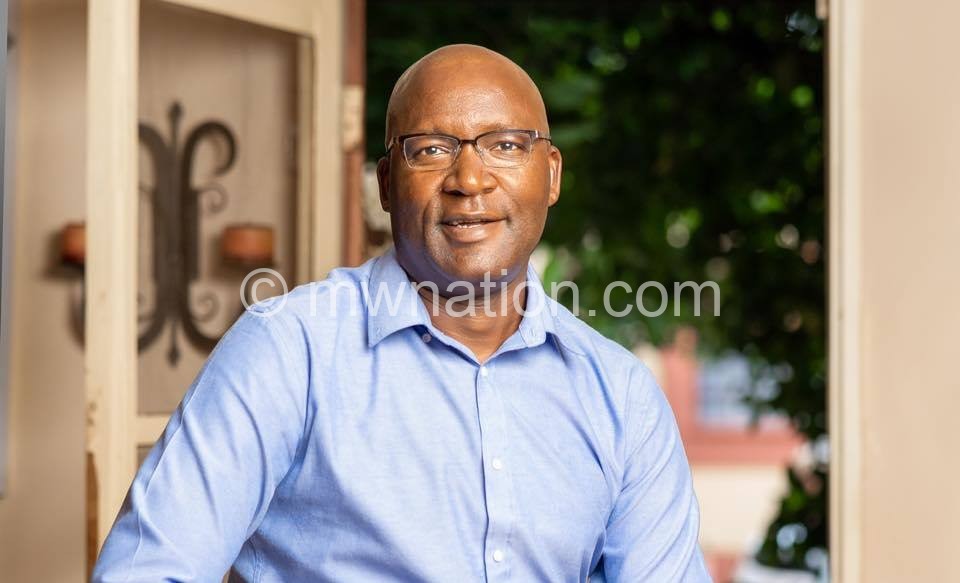‘Govt must embrace use of evidence’
The African Institute for Development Policy (Afidep), a regional think-tank working across Africa, has urged government to embrace a culture of evidence use in public decisions. Afidep executive director and founder Dr. Eliya Zulu says only evidence-based policies can help Malawi to effectively respond to the social and economic challenges that it is facing. SUZGO CHITETE speaks to Zulu to learn more about their work in Malawi and elsewhere.

What is the main thrust of your work as Afidep?
There is a lot of research that is done every day. But the questions are: Is this research put to good use? Is it making a difference or are policymakers making use of this research? So, I noticed a gap that there was a need to have a neutral organisation that is not doing the research, but helping policymakers understand how they can make use of research results to inform policy or decisions and that’s what we do.
You have indicated that you look at available research, synthesise it and then present it to policy/decision-makers. Why is this necessary?
You will find that one group is presenting their research findings on young people and then another one is also doing the same. Policymakers will attend to all these disseminations because they are invited. At the end of these meetings, we all tick the box and tell our funders that we disseminated the results to decision-makers even when nothing happens thereafter. So, in our case, we look at available evidence (research), we analyse it and make it usable for policymakers. We look at different pieces of evidence and come up with one comprehensive piece that responds to a particular issue.
So in a way you are sort of a bridge between researchers or people who generate evidence and policymakers?
We do not just collect data for the sake of it, but we do research that answer specific policy questions. We are a research and policy organisation, but the main research we focus on is what we call translational research—which simply means we are trying to translate the research that is already there—using a systematic methodology, to help policymakers use the same to deal with specific issues.
In the context of Malawi, what have you done or how are you working to help policy-makers make use of research in decision-making?
One thing we noted when we started working in Malawi is that part of the reasons evidence is not used consistently in government is that there are bottlenecks, sometimes policy-makers do not have ample time to look at the evidence, may also not have the technical skills because a lot of this evidence is scientific, but there are also no structured mechanisms on how government can engage with universities and research organisations. So what we are doing is strengthening the capacity of government to be able to use evidence; for example, if there is an issue, how can they resolve it using available evidence. Because policymakers are not supposed to do research by themselves it is done by others, but the issue is how do they get that research and how do they assess its quality. This is the gap we are addressing by strengthening the capacity of government’s ministries, departments and agencies (MDAs).
Which MDAs have you worked with so far and in what context?
We have worked with Ministry of Health on matters of family planning and reproductive health. We actually assisted the government in drafting the current population policy. We have developed guidelines on evidence use for Ministry of Health as well as Parliament. In health wellbeing, we are working on TB, sepsis and microbial resistance. We are supporting governments to improve education systems in Africa. We work across sectors and these are just some of the examples but our core role is to do translational research, though sometimes we are involved in the collection of data like currently we are doing a project whereby we are collecting data on the use of traditional methods of family planning funded by the Gates Foundation and we are doing it in Kenya, DRC, Ghana and Nigeria.
What else are you doing in Malawi?
We are engaging with the government on issues of climate change. We have actually supported the formulation of the climate change policy so that it [the policy] does not only talk about climate change but brings in issues of population. And there is governance and accountability, in Malawi, that’s our biggest area. We are running what we call Malawi Parliament Enhancement Project. The aim of the project is two-fold – enable Parliament to enact interventions that will help it achieve its autonomy. So, Parliament has to be independent, it needs a protected budget and it must not survive at the mercy of the executive. We are also looking at improving the office of a member of Parliament (MP) to enable them to execute their duties diligently. Look at MPs, most of them operate from the boots of their cars, they do not have offices or teams that can help them deliver. So, we are supporting the reform program at Parliament that will make MPs more effective and responsive.





